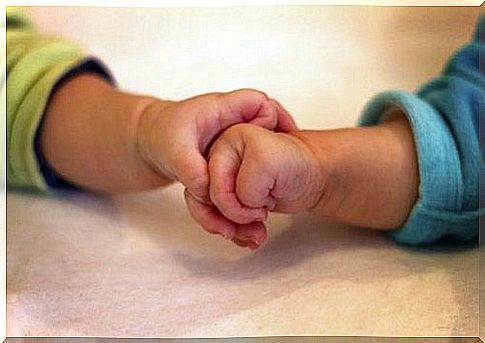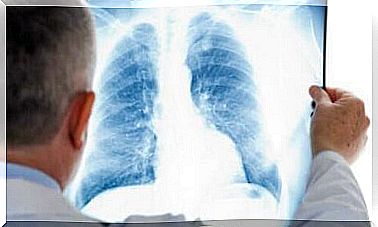Hereditary Breast Cancer Gene Disappears In Little Girls In Spain
Some cases of breast cancer have a genetic root. The selection of embryos allowed little Spanish girls to be born without carrying this terrible family heritage within them.

Most cases of breast cancer do not have a specific cause. But it is estimated that between 5 and 10% of diagnosed cancers are linked to genetic mutations. The breast cancer gene can therefore mutate.
Breast cancer gene explanations
The BRCA1 and BRCA2 genes are the genes responsible for the tendency to develop this disease. They are transmitted through means of autosomal dominant inheritance , which vary according to each person.
Carriers of mutations in these genes have a high risk of suffering from this type of cancer at any time in life. In addition, the probability rate of transmitting it to children is 50%.
Doctors always take into account the family and medical history of affected individuals. They explain to them the risks that exist when gene mutations are present in the body.
This is due to the fact that today there are preventive measures that can minimize the risk as much as possible. The goal is not to reach the chronic stages of the disease.
Thanks to the advancement of science and technology, there are more and more methods that seek to overcome this disease.
Here is an example that occurred a few months ago in Spain. In this country were born the first little girls not carrying the BRCA2 gene. This was made possible thanks to a technical innovation in embryo selection which makes it possible to choose those which do not carry this gene in them.
This report appeared in the newspaper El Mundo. The mother of these little girls says that in the family, all the women are carriers of this BRCA gene.
This one was at the origin of the death of his great-great-grandmother, of his great-grandmother and of his grandmother.
This mother, wanting children, was afraid to pass this genetic inheritance on to her children. She therefore made an appointment in a center of the Valencian Institute of Infertility in Galicia.
The aim was to study the possibility of undergoing a preimplantation genetic diagnosis.
The history of the breast cancer gene
Laura, who preferred to use a pseudonym, is the proud mother of two beautiful little girls who were born without carrying the BRCA2 gene, the cause of breast cancer and responsible for the deaths of several women in the family.
She says her mother is also a carrier of the gene and this is the second time she has been diagnosed with cancer.
The oncologist then suggested that they do a genetic study, given their family history.
Genetic study
At first, she didn’t want to know if she was a carrier. However, after a check-up and planning to start a family, she finally underwent the necessary exams.
And indeed, studies have shown that it carries the BRCA2 gene within it. This is an abnormality that causes cancer of the breast and ovaries.
Since then, she has started the processes that authorize a preimplantation genetic diagnosis. It is already used in some monogenic diseases. But in the case of hereditary cancer, it must be validated by the National Commission for Medically Assisted Procreation of the Ministry of Health.
This commission is in charge of studying in detail the family and reproductive antecedents of the woman. He must verify that the mutation can cause the early onset of the disease in the offspring.
After six months of long wait, Laura and her husband finally received a positive response and began the process of assisted reproduction.
Conclusion
Doctor Elkin Muñoz is director of IVI Vigo and gynecologist. He was in charge of this case and explained that among the 11 embryos obtained, three did not carry the BRCA mutation.
Two of them have been implanted. One of them was also frozen in case the woman wanted to be a mother again in the future.
As a result of the in vitro fertilization process, two little girls were born last July, named Claudia and Andrea.
Muñoz explained that before these two children, two cases of little boys not carrying this gene had been recorded in Barcelona and Zaragoza.
This same method has also been applied to prevent hereditary transmission in families carrying Lynch syndrome and the hereditary thyroid cancer gene.
Happy to free her daughters from this dangerous heritage, Laura is now waiting for them to grow up a little. She will then undergo a preventive mastectomy. But also to all the processes necessary to avoid cancer because of the genetic mutation which it carries.









